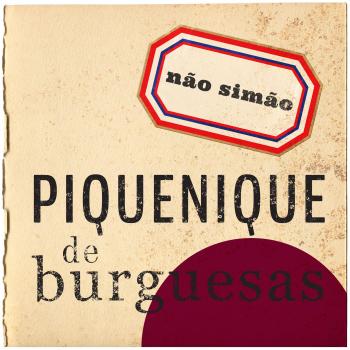Lá Fora
Rita BorbaEvery now and then a female voice appears singing pop in Portuguese. This has been the case since the eighties until the tenth years, through the nineties and through the zero. Few female pop voices in the midst of more and more female fado voices. Now in the twenties, our question would naturally be who could be the female voice of this time that runs too fast and at the whim of short videos watched on the bus or while eating. That voice has just emerged and it has a name: Rita Borba.
Her beautiful disc also has a name: Lá Fora. This is how the inhabitants of the islands refer to those who have ventured to the mainland, that ‘distant’ land to the east of the Atlantic. Rita is Azorean, born on Terceira Island, and has a tenderly fragile but confident voice, a breath of incredible melodies in just eight songs. With the invaluable help of two of the most talented songwriters of her generation, Tomás Branco and Pedro de Tróia, who also produce, this is one of those albums that is lovely at first listen, without any sense of guilty pleasure.
Waking up from the watercolour dream, we count to three, drink tea at five and look out over the Tagus, which is crying all the way to the sea, like the tears we were left with at the end of the first listen to ‘Lá Fora’. Is this the lost pearl of Atlântida, the band Lena d'Água recorded with, or the blue dream of Né Ladeiras? We don't know. We do know, however, that the voice we hear is heir to both. And, in fact, we can also think of Mónica Ferraz (ex-Mesa) or Márcia, voices that appeared in Portuguese pop before Rita Borba. Or, more recently, Joana Espadinha.
What really got us excited was the sweetness of these songs, honed in another time, another place, another space, another reality. A slower, more languid and gentle reality, where there was still time to hold hands before the first kiss, time for first dates made up of candlelit dinners. These eight songs are the perfect soundtrack for that encounter with a time that perhaps no longer exists. And suddenly a sweet, candid, simple and melodious voice appears, secure in its delicacy. The female voice of the twenties Portuguese pop has just emerged. Not listening to her is a sin, don't want to live with that guilt.





